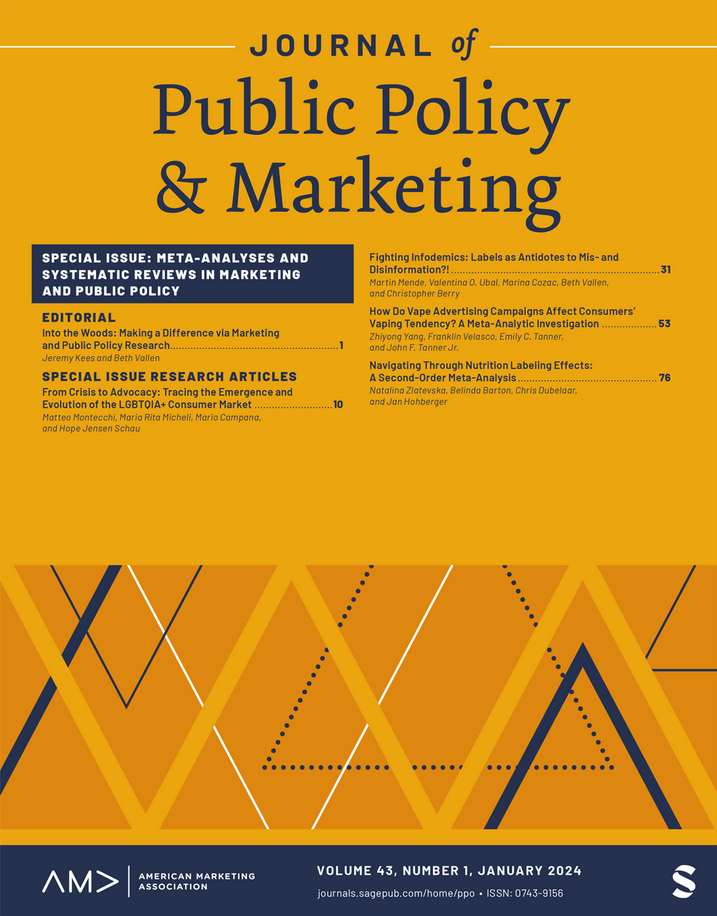EXPRESS:内隐理论在基于威胁的敬畏反应中激励捐赠的作用
IF 4.7
3区 管理学
Q1 BUSINESS
引用次数: 3
摘要
目前的研究调查了慈善捐赠是如何对基于威胁的敬畏(一种通常伴随着救灾活动的情感体验)做出反应的,这可能取决于消费者的内隐理论。虽然消费者在经历基于威胁的敬畏时想要表现出亲社会行为,但由于威胁的存在,这种行为取决于他们是否相信自己的捐赠具有足够的效力。因此,对于基于威胁的敬畏,持有增量(相对于实体)理论的消费者认为他们的捐赠更有效,这随后增加了他们的慈善捐赠。这些预测在五项实验研究中得到了验证。这项研究的发现有助于内隐理论和敬畏情绪的文献研究,也提供了一种更细致入微的方法来研究不同的消费者在自然灾害背景下是如何被激励参与慈善捐赠的。本文章由计算机程序翻译,如有差异,请以英文原文为准。
EXPRESS: The Role of Implicit Theories in Motivating Donations in Response to Threat-based Awe
The present research investigates how charitable giving in response to threat-based awe, an emotional experience that typically accompanies disaster-relief campaigns, is likely to depend on consumers' implicit theories. While consumers want to behave prosocially when experiencing threat-based awe, due to the presence of threats, such behavior depends upon whether they believe that their donations have sufficient efficacy. Consequently, in response to threat-based awe, consumers holding to an incremental (vs. entity) theory perceive greater efficacy for their donations which, subsequently, increases their charitable giving. These predictions are tested across five experimental studies. The findings of this research contribute to the literature on implicit theories, the emotion of awe, and also offers a more nuanced approach to how different consumers may be motivated to engage in charitable giving in the context of natural disasters.
求助全文
通过发布文献求助,成功后即可免费获取论文全文。
去求助
来源期刊

Journal of Public Policy & Marketing
BUSINESS-
CiteScore
10.20
自引率
15.40%
发文量
29
期刊介绍:
Journal of Public Policy & Marketing welcomes manuscripts from diverse disciplines to offer a range of perspectives. We encourage submissions from individuals with varied backgrounds, such as marketing, communications, economics, consumer affairs, law, public policy, sociology, psychology, anthropology, or philosophy. The journal prioritizes well-documented, well-reasoned, balanced, and relevant manuscripts, regardless of the author's field of expertise.
 求助内容:
求助内容: 应助结果提醒方式:
应助结果提醒方式:


